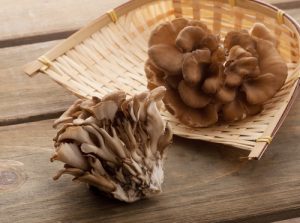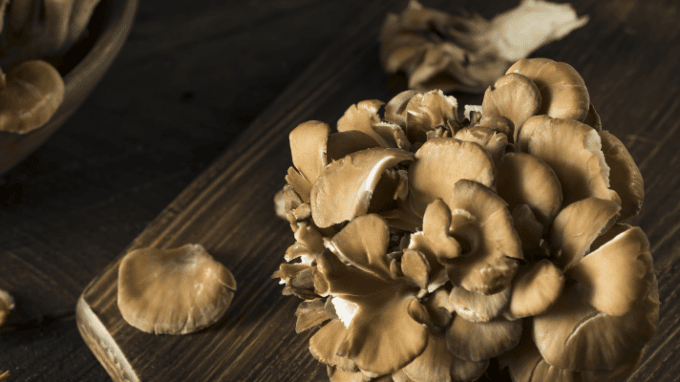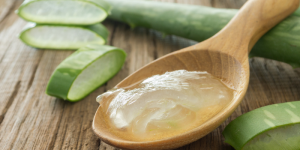Polycystic ovary syndrome (PCOS) is a condition present in women of reproductive age. Discover how PCOS sufferers can reduce or eliminate their symptoms by consuming maitake mushroom.
Maitake Mushrooms Have Positive Effect on Hormone Balance
There is such a diverse ecosystem of mushrooms found worldwide that it is nearly impossible to keep up with them all. In Japan, a traditional mushroom is beneficial for women with PCOS. The maitake mushroom helps improve the symptoms of PCOS by creating an environment in which hormones can also regulate themselves.

The maitake mushroom helps balance and regulate insulin levels, which is also beneficial for women with PCOS. This is because the hormone insulin regulates the amount of insulin resistance in your body, which can lead to irregular periods and increased testosterone levels.
Maitake mushrooms also prevent estrogen overload in PCOS patients. Estrogen is a hormone that’s necessary for proper ovulation and menstrual cycle regulation. However, too much of it can cause higher testosterone levels and infertility in women. These mushrooms have a natural ability to limit the amount of estrogen in the body and help balance out hormone production.
Another benefit of maitake is that it improves mental health in PCOS patients. This is important for women with PCOS because elevated testosterone levels can lead to depression and other mental health issues.
Maitake mushrooms aid weight loss by regulating insulin production and promoting leptin sensitivity, which helps the body know when to stop consuming food.
Maitake mushrooms also improve digestion, which is helpful for women with PCOS. Your body needs an adequate amount of fiber to aid digestion, and this is something that maitake mushrooms can provide.
Folate is an element from the maitake mushroom present in green vegetables. Folate helps convert foods into energy, and it helps prevent depression and anxiety as well.
Another benefit of the maitake mushroom for PCOS patients is it can help improve your sleeping patterns. This is significant since those with PCOS often suffer from fatigue and irregular sleeping patterns, leading to low energy levels during the day.
The maitake mushroom reduces the risk of PCOS infertility by balancing hormones. This helps prevent excessive testosterone levels and infertility issues.
How to Take Maitake Mushroom for PCOS Treatment
There are many ways to enjoy the benefits of maitake mushrooms. You can add it to your diet or use maitake supplements as a natural PCOS treatment.
However, maitake mushroom is only one way to help treat PCOS symptoms. Many natural PCOS treatments can make a difference in weight loss, fertility and overall health.
How to Choose the Right PCOS Treatment

Some women with PCOS also want to avoid surgery or drugs. This is why natural PCOS treatments are beneficial for many of them.
Natural treatment for PCOS requires a combination of lifestyle changes and diet. The lifestyle aspects will help control weight and hormone levels. Making dietary changes will promote weight loss and can help prevent the development of PCOS symptoms in the first place.
Try Consuming Maitake Mushroom Today
Maitake mushroom is a natural hormone balancer that can help improve symptoms of PCOS. You can protect your body’s health and benefit from maitake mushrooms by adding them to your diet and food choices. You can also use maitake supplements to complement your PCOS treatment. Contact your nutrition expert to learn more about natural PCOS treatments and other tips.




